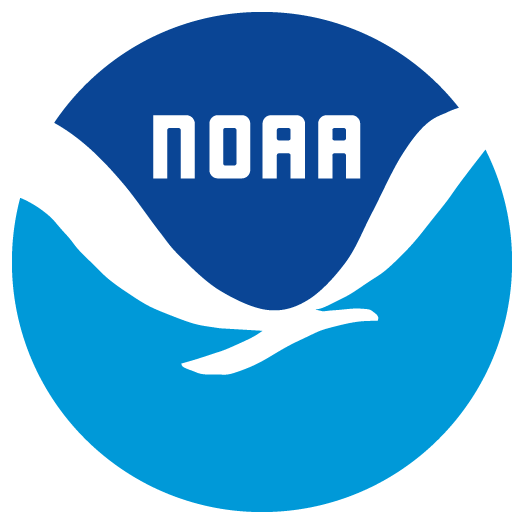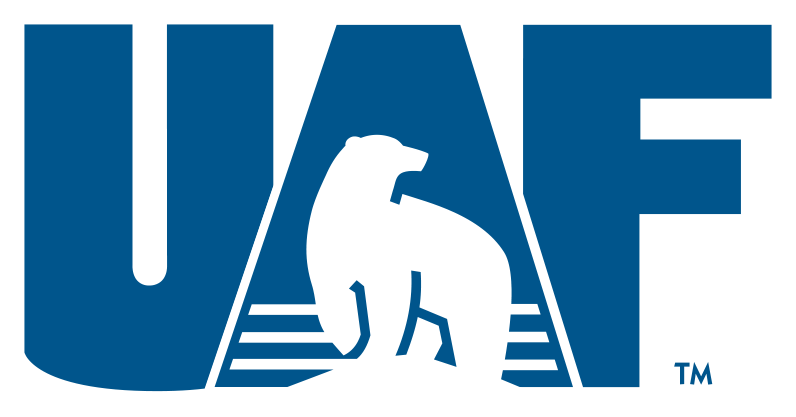Keynote and Invited Speaker Biographies
Keynote, Broad Science Perspective
- Sue Moore, NOAA Fisheries, Office of Science and Technology
Keynote, Community Perspective
- Edward Itta, Barrow, Alaska
Keynote, Arctic Research and Policy Issues
- Kate Moran, Ocean Networks Canada
Session 1: Observed and anticipated environmental changes in the Arctic
- Eddy Carmack, Department of Fisheries and Oceans Canada, Institute of Ocean Sciences
Session 2: Lower trophic level productivity of arctic waters in a changing climate
- Kevin Arrigo, Stanford University, Department of Environmental Earth System Science
Session 3: Marine fish resources of the Arctic in a changing climate
- Anne Hollowed, NOAA Alaska Fisheries Science Center
Session 4: Observed and anticipated responses of arctic birds and marine mammals to environmental changes in the Arctic
- Mike Hammill, Department of Fisheries and Oceans Canada
Session 5: Effects of changing arctic marine ecosystems on humans
- Phillip Loring, University of Alaska Fairbanks, Institute of Northern Engineering
Session 6: Understanding and managing arctic marine ecosystems in a time of change
- Jake Rice, Department of Fisheries and Oceans Canada
- Doug DeMaster, NOAA Alaska Fisheries Science Center
Symposium Summary and Conclusion
- Fran Ulmer, U.S. Arctic Research Commission
Sue Moore, Keynote
Dr. Sue Moore is a biological oceanographer with the NOAA Fisheries Office of Science and Technology. She has 35 years of research experience focused on the ecology, bioacoustics, and natural history of whales and dolphins, with much of her work directed toward cetaceans in the Pacific arctic region. Sue served as chair of the Environmental Concerns Working Group of the International Whaling Commission Scientific Committee from 2008-2012, and is currently on science steering and advisory committees for the US Marine Mammal Commission, the North Slope Science Initiative, the North Slope Borough Shell Baselines Studies project, and the Arctic Council/CAFF Marine Biodiversity Monitoring Group.
Edward Saggan Itta, Keynote
Edward Itta is an Inupiat whaler and hunter, living in Barrow. He is committed to protecting the Inupiat subsistence heritage and ensuring the long-term social and economic viability of all the communities of Alaska's North Slope. Itta was elected mayor of the North Slope Borough in 2005 and re-elected in 2008. He is a current member of the federal Outer Continental Shelf Policy Committee and the Barrow Whaling Captains Association, and a past commissioner of the Alaska Eskimo Whaling Commission. Itta also was president of the North Slope Borough School Board and was vice-chairman of the federal Subsistence Advisory Council for northern Alaska. And he served as president of the Inuit Circumpolar Council-Alaska. He and his wife, Elsie, have two children and five grandchildren.
Kate Moran, Keynote
Kate Moran is president of Ocean Networks Canada. She formerly served a two-year term as assistant director in the White House Office of Science and Technology Policy in Washington, DC. Moran holds degrees in marine science and engineering from the University of Pittsburgh, the University of Rhode Island and Dalhousie University. Her research focuses on marine geotechnics and its application to the study of paleoceanography, tectonics, and seafloor stability. Moran has led several major oceanographic expeditions, including the first drilling expedition to the Arctic Ocean in 2004. The following year she led the first expedition to find the source of the earthquake that caused the 2004 Indian Ocean tsunami.
Eddy Carmack, Invited Speaker
Edward C. Carmack is a climate research oceanographer with the Institute of Ocean Sciences in Sidney, British Columbia, and the Sydney Chapman Chair in the College of Natural Sciences and Mathematics, University of Alaska Fairbanks. In 2007, he was awarded the Massey Medal by the Royal Canadian Geographical Society for his outstanding work in ocean science. Carmack's research interests are in the role of continental shelf areas in water mass formation and modification, the mechanisms by which coastal runoff influences ocean circulation and climate in the North Pacific and Canadian Arctic, and the formation and behavior of subsurface water masses in the open ocean and on the continental shelves.
Kevin Arrigo, Invited Speaker
Dr. Kevin Arrigo is professor and director of the Earth Systems Program at Stanford University. As a biological oceanographer, he focuses on temporal and spatial variability of microalgal biomass and productivity. This knowledge is essential to understanding how anthropogenic and atmospheric forcing controls the biogenic flux of CO2 into the oceans and to the sediments. He is a member of the IMBER/SOLAS Working Group for Carbon Research and was a member of the Bering Sea Ecological Study Committee, National Science Foundation.
Anne Hollowed, Invited Speaker
Anne Hollowed is a senior scientist at the NOAA Fisheries, Alaska Fisheries Science Center, where she leads the Status of Stocks and Multispecies Assessment program. Her research is focused on fisheries management and the effects of climate variability and change on marine fish and fisheries. Anne is an affiliate professor in the School Aquatic and Fisheries Science at the University of Washington. She is on the North Pacific Fishery Management Council Scientific and Statistical Committee; the Joint World Meteorological Organization’s CAgM/JCOMM Task Team on Weather, Climate and Fisheries; and the ICES/PICES Strategic Initiative on Climate Change Effects on Marine Ecosystems. Anne is a lead PI for the fish component of the NPRB/NSF Bering Sea program.
Mike Hammill, Invited Speaker
Dr. Mike Hammill is head of the marine mammal section of the Department of Fisheries and Oceans Canada. His research has examined habitat use, reproductive energetics, and growth and ecology of seals in the Canadian and Norwegian Arctic and in Atlantic Canada. Current research involves studies on population dynamics, foraging ecology, and spatial use and movements of beluga in northern Quebec (Nunavik) and pinnipeds in the Gulf of St. Lawrence, as well as marine mammal–commercial fisheries interactions.
Philip Loring, Invited Speaker
Philip Loring, Ph.D., is a research assistant professor at the Institute for Northern Engineering, and affiliate of the Center for Cross Cultural Studies, University of Alaska Fairbanks. He is an ecological anthropologist with research interests in food systems, environmental change, and environmental justice. His research integrates methods and perspectives from political and human ecology, anthropology, geography, and indigenous studies. His research focus for the Alaska Center for Climate Assessment and Policy is on coastal and marine resources in Alaska, including fisheries management and coastal community responses to climate change.
Jake Rice, Invited Speaker
Jake Rice is the chief scientist for Fisheries and Oceans Canada. Over his research career he has worked on a variety of marine issues, now considered part of investigating ecosystem effects of fishing and ecosystem approaches to management. His current work focuses on science advisory roles in international marine policy for sustainable fisheries and consideration of biodiversity, including membership in the Group of Experts for the UN Regular Process for Global Marine Assessments, and as a lead author for one of the mitigation chapters in the upcoming IPCC Assessment Report 5.
Douglas DeMaster, Invited Speaker
Douglas DeMaster received his Ph.D. from the University of Minnesota in 1978. He has published over 100 peer-reviewed articles on conservation biology, marine mammal–fishery interaction, and quantitative ecology. He has served as the president of the Marine Mammal Society and chair of the International Whaling Commission's Scientific Committee. He is currently the science and research director for NOAA Fisheries, Alaska Region, and is NOAA's lead for the Alaska Region Coordination Team.
Fran Ulmer, Invited Speaker
Fran Ulmer is chair of the U.S. Arctic Research Commission, a post she was appointed to by President Barack Obama in 2011. In 2010, President Obama appointed her to the National Commission on the BP Deepwater Horizon Oil Spill and Offshore Drilling. From 2007 to 2011, Ms. Ulmer was chancellor of the University of Alaska Anchorage, where she previously was Distinguished Visiting Professor of Public Policy and director of the Institute of Social and Economic Research. Ms. Ulmer served as an elected official for 18 years as the mayor of Juneau, a state representative, and as Lieutenant Governor of Alaska. She has been on numerous local, state, and federal advisory committees and boards. Ulmer earned a J.D. cum laude from the University of Wisconsin Law School, and has been a Fellow at the Institute of Politics at the Kennedy School of Government.



